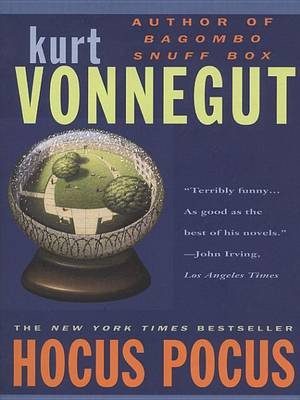Reviewed by clementine on
This novel is also centrally concerned with the idea of inevitability as well as hereditariness. There are several hereditary conditions that are woven through the narrative, but there's also the idea that social class is hereditary and that things like class, race, and education combine to create an inevitable and predictable future. Of course, this is a (deliberately) essentialist take on complex sociological concepts, but there is a lot of truth in the fact that certain experiences and identities make people more or less susceptible to various successes or downfalls.
Of course, the theme that connects the entire novel is the Vietnam War - its futility and devastation, its ability to create successful, prolific killing machines, the way it has impacted life in the USA of the early 1990s. Eugene, a prominent soldier in Vietnam, is persistently haunted by one particular image of a severed head. Although he himself killed countless people, it is this particular horror that he cannot shake. Similarly, the book personalizes the idea of injustice - war, the prison industrial system - using Eugene as a stand-in for devastation that is on too large a scale to adequately comprehend.
This is a little harder to get through than Vonnegut's work often is, and worth every page.
Reading updates
- Started reading
- 19 May, 2019: Finished reading
- 19 May, 2019: Reviewed
